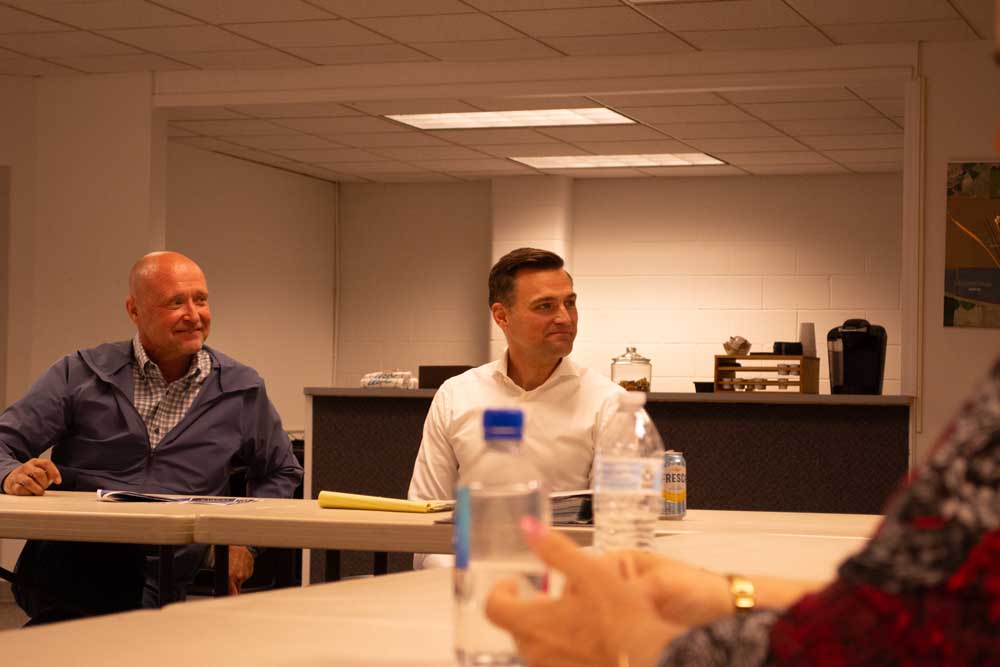Capital Chatter: Gratitude, the Oregon way
Published 5:00 pm Wednesday, November 23, 2022

- capital chatter logo
On this Thanksgiving weekend, I am grateful for many things. Here is a varied selection:
Trending
Governor’s trade mission to Vietnam: The world overflows with bad news. Gov. Kate Brown’s trade mission this month stands as an antidote. Decades after our countries were at war, Oregon and Vietnam are diplomatic, economic and even security friends. Vietnam is Oregon’s eighth-largest export market, with over $1 billion in exports last year.
Besides attending various business events, Brown marked the 10th anniversary of the state partnership between the Oregon National Guard and the National Committee for Incident, Disaster Response, and Search and Rescue of Vietnam.
Of note, five Vietnamese Americans will be serving in the Oregon House next year.
No more negative ads until … : Finally. The election is over. The emphasis on negative campaigning stunk. I’d bet campaign spending far exceeded $100 million – much of it in the governor’s race and much of it to disparage opponents.
As political scientist Jim Moore said when we were discussing the election results, attack ads are good at suppressing the vote but not at bringing people over to your side.
Being an Oregonian: Despite our many challenges – well-documented in the news and repeated in the aforementioned campaign ads – Oregon remains a great place to live. Our state is populated with good people who have more in common than that which divides us. For Oregon’s sake, and our own sanity, can we focus more on those commonalities?
Trending
They include our mutual love for the outdoors. By the way, would someone please take Portland Trail Blazer Damian Lillard to the Oregon Coast for the first time?
Oregon’s capital: “The most Oregon part of Oregon” is how Travel Salem casts the city for tourists. I think it’s also an apt description politically, demographically and socially.
Salem is the state’s second-largest city, with a population of 179,642, but is caught between a small-town feel and being a big city. You can run into legislators working out at the YMCA and join statewide elected officials in line at a coffee shop. A friend of mine was in the same yoga class with Gov. Brown.
The Salem City Council tilts progressive, yet the Marion County commissioners are Republicans. The commissioners in Polk County, which includes West Salem, officially are nonpartisan but have a Republican bent.
Women long have been Salem leaders, regardless of political party, from state representative Norma Paulus, who later became secretary of state and then state schools chief, to a host of mayors, city councilors, county commissioners, legislators, and business executives. Among the current women leaders are Salem-Keizer’s nationally recognized school superintendent, Christy Perry, and Salem Health CEO Cheryl Nester Wolfe.
In recent decades, Salem has emerged as much more than a government town. The community is known for its visual and performing arts, including one of the nation’s top public school music programs; its plentiful parks, along with the Capitol grounds; its eclectic restaurants and brewpubs; and its proximity to wineries.
Yet Salem exemplifies the haves and have-nots. Million-dollar homes and acreages dot the hills. Homeless individuals sleep on sidewalks near the Capitol. Salem’s median income is more than 10% below the state’s.
Sixty-seven percent of Salem residents are white; 22% are Hispanic/Latino. In contrast, 45% of students in Salem-Keizer Public Schools are Hispanic; 42% are white. Ninety-six languages are spoken in the schools, and 29% of students speak a language other than English at home.
Understandable economists: Every three months, State Economist Mark McMullen and senior economist Josh Lehner of the Oregon Office Economic Analysis present the latest economic and revenue forecasts that help the governor and Legislature figure out how much money to spend … or perhaps save.
They have a difficult, almost impossible task, especially considering Oregon’s quirky income tax “kicker” law. The reality, as McMullen noted during the recent forecast, is, “Economic forecasters aren’t very good at forecasting.”
Legislators and others, depending on their political perspective, sometimes imply that the forecasts either are too political or not political enough. However, McMullen and Lehner invariably are gracious and thoughtful as they juggle being key state employees in a political environment.
Having routinely skipped my 8 a.m. college economics class (I was too busy editing the student newspaper), I’m grateful that McMullen and Lehner speak in words and phrases that humans can understand.
The folks who make Capital Chatter work: Thank you to all the people who return my calls and emails, patiently answer my questions in interviews, send me ideas and alert me if I’ve erred.
Thank you to my editor, whom I deeply appreciate. We all need editors.
Most of all, I am thankful to you, the readers – and especially to those who not only read but also take time to respond.
(And thanks to Jeb Bladine for not firing me when I was so inept early in my first journalism job at the McMinnville News-Register. I had wandered down to the newspaper in 1976, seeking a job. Without it, who knows what career I would have fallen into?)
As always, thanks to my family for putting up with a journalist’s life. Once writing and journalism enter the bloodstream, there are no replacement therapies.





